-
•
•
16 responses
Terryl L. Givens and Matthew J. Grow, Parley P. Pratt: The Apostle Paul of Mormonism, Oxford University Press, October 2011, 521 pages. Read More
-
•
•
4 responses
Starting tomorrow and extending for several weeks, several of my co-bloggers and I will post reviews of Parley P. Pratt: The Apostle Paul of Mormonism by Terryl L. Givens and Matthew J. Grow, which was published a few months ago by Oxford University Press. Read More
-
•
•
9 responses

Unfortunately inspired by a personal experience related to me recently, I present a rebuke of sorts and a call for more Christ-like compassion by Elder Holland. “When a battered, weary swimmer tries valiantly to get back to shore, after having fought strong winds and rough waves which he should never have challenged in the first place, those of us who might have had better judgment, or perhaps just better luck, ought not to row out to his side, beat him with our oars, and shove his head back underwater. That’s not what boats were made for. But some of us… Read More
-
•
•
6 responses
A Japanese former ambassador to China recently offered some provocative thoughts on the global promise of America, suggesting that the American melting pot is a kind of pilot project for world peace. Could the same be true of the LDS Church? Read More
-
•
•
22 responses
“Why didn’t I know about this?” She sounds angry. Read More
-
•
•
12 responses
Nauvoo had its Relief Society, but the “society of sisters” in Boston was instead the “Sewing and Penny Society,” or so the Church’s New York City newspaper reported. Despite all that the Relief Society has become in the nearly 170 years since it was founded, it apparently only existed in Nauvoo. In other areas, women were left to their own devices. Read More
-
•
•
41 responses
A three-part quiz: 1. Please review the account of Korihor in Alma 30. 2. True or false: Korihor was a religious freedom advocate battling an oppressive central government. 3. What does your answer in #2 say about these areas? Pick a few, and elaborate: -The role of religion in public life -The place of religious freedom claims -Free speech and its potential limitations -Popular conceptions about the proper role of government in 1830 (or in 2011) -Democracy, theocracy, and Zion -Any related topics of interest Read More
-
•
•
65 responses
A few weeks ago two Evangelical scholars authored “The Evangelical Rejection of Reason,” an op-ed at the New York Times lamenting the fact that the Republican primary race “has become a showcase of evangelical anti-intellectualism.” While the Mormons in the race, Romney and Huntsman, were described as “the two candidates who espouse the greatest support for science,” the discussion still invites the LDS reader to reflect a bit on whether there is a similar strain of LDS anti-intellectualism evident in LDS culture if not in LDS presidential candidates. Read More
-
•
•
30 responses
Regular T&S readers will have noticed that our site has not been available for much of the past couple of days. Its not our fault. On Thursday morning, Bluehost.com, our now former host, shut down our site without warning and without providing any specific information that might allow us to solve whatever problem had arisen.We are not pleased and, frankly, we expected more of a company based in a heavily Mormon area. So we have taken the opportunity to switch hosts, and we are upgrading our software in the process. All of our content has been recovered and all of… Read More
-
•
•
3 responses
Patrick Mason is studying the effect of the bloggernacle on Mormon Studies, has put together a questionnaire, and is seeking responses from graduate students. Here is a preface from Dr. Mason, the Howard W. Hunter Chair of Mormon Studies at Claremont Graduate University: At the January 2012 meeting of the American Society for Church History, I’ll be on a panel called “Teaching Mormonism in a Digital Age.” In my comments I’ll be considering the impact of the “bloggernacle” on Mormon studies, specifically in regard to the current generation of graduate students. I have designed the following questionnaire to get a… Read More
-
•
•
8 responses
Here’s my wild-eyed claim for the day: religion is about the world, not about religion. Which do you talk about at church? Read More
-
•
•
16 responses
About a week ago, James posted a reflection on Harold Bloom’s (frankly awful) New York Times op-ed. Rather than directly responding, though (other than expressing his rightful disappointment), James engaged with Dr. Bloom’s allegation that Mormonism and Protestantism are converging. Though concerned about such a convergence, James ultimately (and rightly, I believe) doesn’t think we’re headed inexorably down that path. That said, Dr. Bloom is right that the Church has changed a lot between 1844 and 2011.[fn1] Change is inevitable and, as Ecclesiastes tells us, is to be expected. And, frankly, there have been a number of changes that, even… Read More
-
•
•
37 responses
Say we agree that Mormonism is about progress and progression. A couple of questions might follow. Read More
-
•
•
22 responses
Depression played a major role in my self-identity for a decade of my life, from about 7th grade through the end of my mission. Life is good. In fact, life is great now. I’ve worked through my demons. No, that makes it sound like I knew what I was doing. Even now I can’t say why things have turned out as well as they have. Just lucky, I guess. I remember the day I decided to be lucky. I was walking to school with a friend on one of those frigid mornings when you can see your breath. Things hadn’t… Read More
-
•
•
39 responses
What would you serve the Savior if he came to your house for dinner? Would you give him beans and rice? Or would you buy a good steak and make a nice meal?” I sat there, thinking about this. My conclusion was that, yes, I actually would serve the Savior beans and rice if he came to my house. Especially if He came unannounced. Read More
-
•
•
44 responses
Yes! The Dow is back down to 11,232! I feel a little like Jonah sitting on the hill, waiting for the fireworks. Hearing that news on the radio brought me my biggest smile all day. Of course, Jonah was roundly rebuked, because Nineveh repented in ashes, and he still was annoyed they weren’t destroyed. He clearly had an attitude problem, and lots of people might say the same about me. The Super Committee’s lame punt is just the most recent sign of the overall trend, though: at an institutional level, we haven’t even really admitted there is a problem, let… Read More
-
•
•
13 responses

When the mission president announced to our small group of greenies that I was going to Strasbourg, I shrugged the resigned shrug of a missionary who knew nothing about anywhere but was willing to go wherever. One of the sisters expressed jealousy; Strasbourg, she said, was one of the best cities in the mission. She was right, and it would not be a good thing. Strasbourg is and was beautiful pre-Christmas.* Several weeks passed before I fully acclimatized to the major time-change, and the schedule of missionary life, but I loved Strasbourg almost instantly. The eastern area of France bordering… Read More
-
•
•
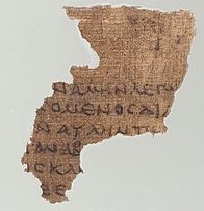
The word “end” has at least two meanings in English: the point that marks the boundary or limit, such as the last point in a series, and the purpose or goal. Of course, these two meanings are not necessarily mutually exclusive. When speaking of the end, Latter-day Saints often use a phrase that is worded in a somewhat unusual way: we speak of knowing the beginning from the end. (See, e.g., Elder Neal A. Maxwell, All These Things Shall Give Thee Experience 38.) This not a scriptural phrase. The closest scriptural phrase is “knowing the end from the beginning” (cf.… Read More
-
•
•
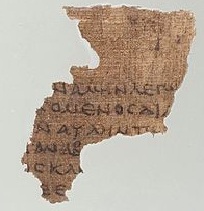
As with other Sunday School lesson notes, these are intended primarily to help people study for the lesson, not as lesson preparation materials. Of course, anything one uses for study can also be used to help one prepare a lesson. But study rather than lesson preparation is the main purpose of these notes. Background The article on Revelation in the LDS Bible Dictionary is excellent. You should read it before you read the lesson material. In addition, here are some things that may be helpful: So far in our New Testament study this year we have seen three kinds of… Read More
-
•
•
One response
For Thanksgiving, I’m posting this essay, written by one of the principle figures of 19th century Mormon letters and perhaps Mormonism’s first prominent feminist. While not a particularly insightful essay, this is somewhat interesting for its understanding of the Thanksgiving holiday in the first few decades after it became popular. I suspect much of Amethyst’s understanding of the holiday’s history is wrong, but its hard to dispute her claims of what Thanksgiving was like in New England “Forty years ago” Read More
-
•
•
7 responses
1. My family. I haven’t said much about them on this blog, and will continue not to say much about them here, but I’m certainly thankful for them. 2. Social networks. And I mean this on all sorts of levels. Facebook has brought me back in touch with friends from high school with whom I otherwise wouldn’t have any contact. But I’m also thankful for IRL social networks: my colleagues, my neighbors, members of my ward, my kids’ friends’ parents. I’m thankful for the community that can happen when the guy comes out to repair your internet, and it turns… Read More
-
•
•
18 responses
Not all targets of our reflexive contempt are well chosen. Expressions of mere gratitude in our monthly testimony meetings are dismissed as ‘thanktimonies’ because they don’t quite cover any of the things a public expression of religious conviction is supposed to be about. But I think this disdain is misplaced, like scoffing at children for riding bicycles when they could instead careen around the neighborhood in outsized cars in which they cannot work the pedals and see over the dashboard at the same time. Read More
-
•
•
11 responses
I’m impressed at how frequently I hear parallels drawn between our church and the many other religions out there. Apparently, we are similar to… the Catholics, due to our shared focus on a formally ordained lineage-based priesthood, strong church hierarchical organization, conservative moral politics, family focus with traditional gender roles, the need for works in addition to faith, and the role of priesthood ordinances in obtaining salvation. the Evangelicals, with our conservative moral politics, family focus with traditional gender roles, claim to spiritual gifts, 19th-century scriptural interpretations, and renewed focus on salvation only being available through faith in Jesus Christ.… Read More
-
•
•
12 responses
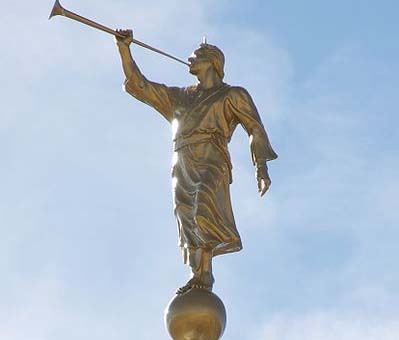
Harold Bloom’s recent NY Times article on Mormonism & politics was tremendously disappointing. The sheer volume of poorly (or dishonestly) researched writing on Mormonism this season is exhausting; and to get this sort of long worn-out, conspiracy minded expression of clichés from someone as well educated as Bloom is downright disheartening[1] (though to be fair, we’ve gotten a good deal of serious journalism as well). But I’m actually not much interested in that side of Bloom’s article. Let me quickly bring up two other points from the article. First, Bloom states this: The founding prophet Joseph Smith[’s]…highly original revelation was… Read More
-
•
•
15 responses
I can’t speak to your experience. I can’t speak even to my own. But I’ll tell a story. I remember the day and time and place that I stopped believing in God, but not the date. Read More
-
•
•
38 responses
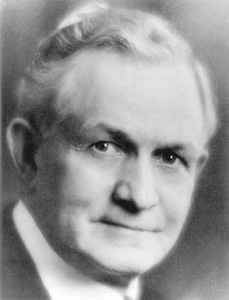
“Men must learn that in presiding over the Church we are dealing with human hearts, that individual rights are sacred, and the human soul is tender. We cannot run the Church like a business.”-David O. McKay Diaries, May 17, 1962, as quoted in “David O. McKay and the Twin Sisters’: Free Agency and Tolerance” by Gregory Prince, Dialogue 33:4 (Winter 2000):13. I read this as saying, we need to be sensitive to other people; we cannot make hard decisions and simply say, “this is business, not personal” as if real people were not involved. I wish we had more context… Read More
-
•
•
31 responses
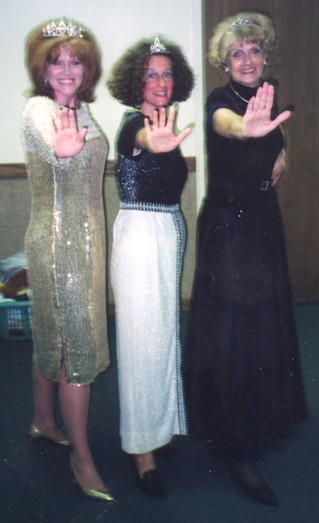
Often in the quest for equality in the church programs for girls and boys, women talk about how much they would have loved to do all the scout activities. As I said in the Boy Scout Redux, I was very envious of many parts of scouting. I love rafting, I pitched in the first girls’ little league in Orem, I ran a marathon to “celebrate” my 40th birthday, and I played intramural flag football and co-ed softball at BYU up until I was past my due date with my second pregnancy. But I don’t love everything “boyish.” I was a ballroom… Read More
-
•
•
13 responses
This world is not conducive to contemplation, to meditation. We are encouraged to read the scriptures, fast, pray and meditate. But how do we meditate? There are some simple steps we can take on a regular basis to clear our minds. Some of these meditation techniques are borrowed from other traditions. Read More
-
•
•
24 responses
My family is not very large (C and, uh, me. Not even a cat), so schedules aren’t hard to coordinate. We’re both active in the Church, and bibliophiles who regularly read and study our own scriptures, and yet we’ve never been able to have productive scripture study together. I am largely to blame for that, since our questions and interests tend to not overlap very much and mine are too arcane and rabbit-hole-ish to be productive for her. In spite of trying several times, it’s never lasted long. I have memories of my teens, bleary-eyed hot breakfast at 5:15, slogging… Read More
